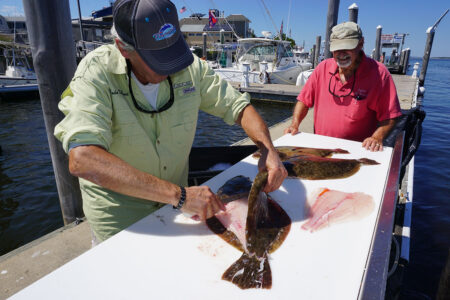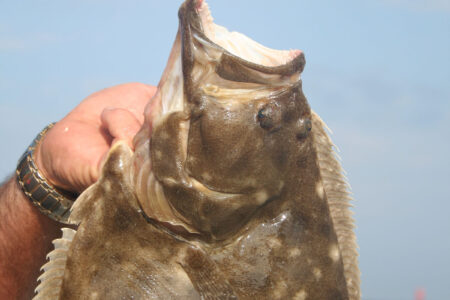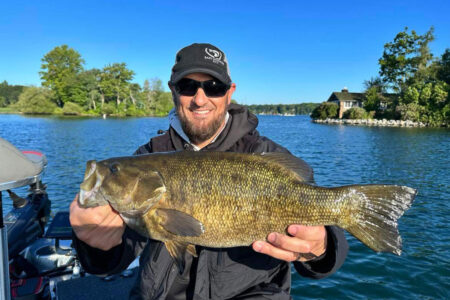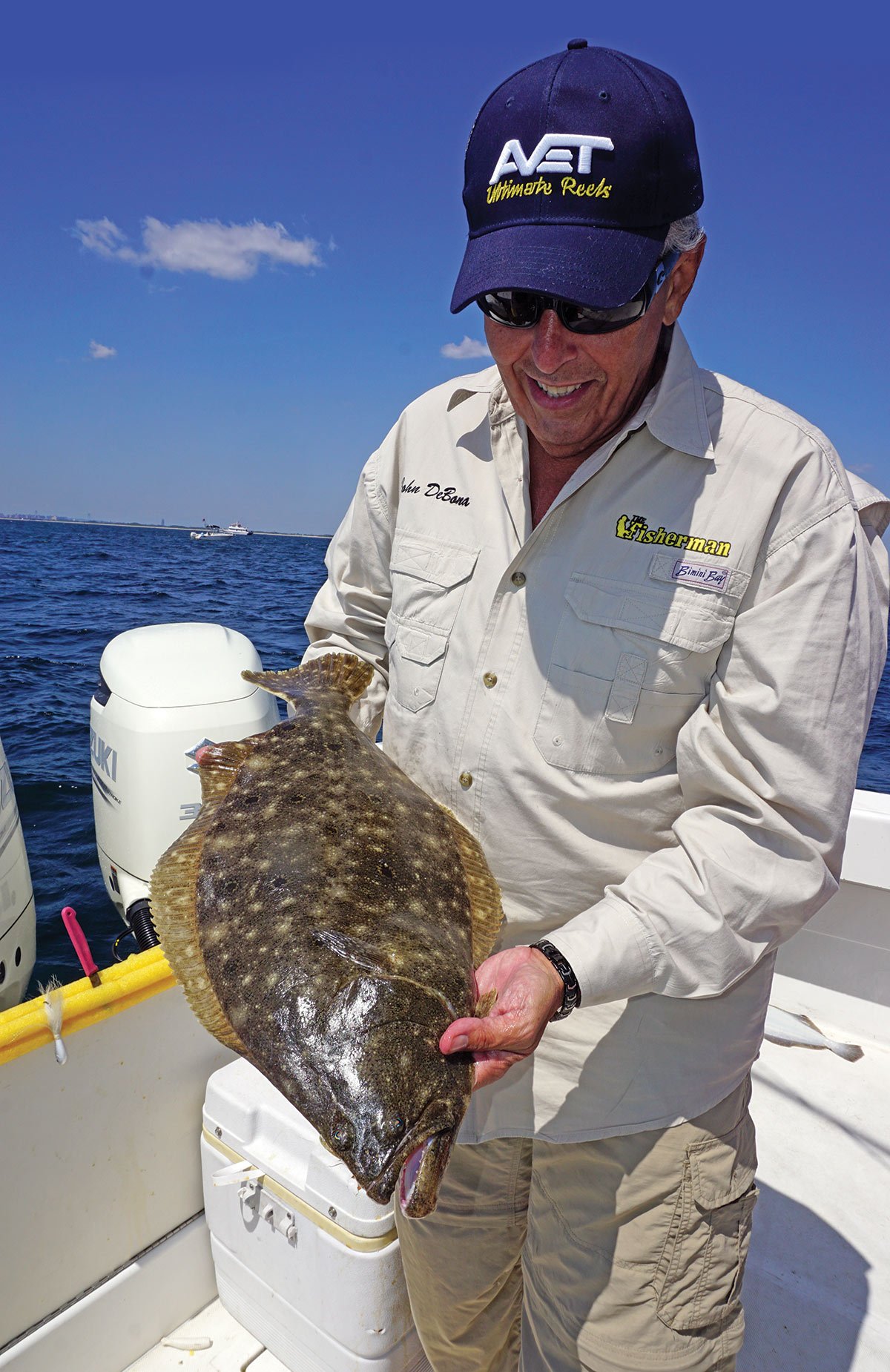
“So what’s our fluke season look like this year,” is probably the number one question for The Fisherman staff and the boat and outdoor shows every winter.
As you leaf through to the report section, you’ll notice that we have the regulations printed as if they’ve been already set. Remember that the regulations we publish are still in effect from the previous season, up until the state and federal government come together to implement new regulations.
So unless we’re told otherwise, it’s all status quo, as is, same old.
Regrettably, the regulatory answers seem to be coming later and later every year, sometimes within just days or hours of the actual opener. Those looking for timely answers to what used to be somewhat reasonable regulatory questions in the past will find it difficult this winter, as the 2019 government shutdown is already having a rather significant impact on the regulatory process.
Council Cancellation
When the Mid Atlantic Fishery Management Council (MAFMC) got together from this past December in Annapolis, MD, the essence of their meeting summary was that 2019 would be status quo for porgy and bass, with further debate on summer flounder expected to come again at the February meetings of both the council and the Atlantic States Marine Fisheries Commission (ASMFC).
On the afternoon of January 22, 2019, MAFMC announced that their February 2019 meeting had officially been cancelled due to the government shutdown. According to the press announcement, the council is considering rescheduling some of the planned agenda items for a shorter meeting tentatively scheduled for March 6 and 7 in Virginia Beach. However, that too will be “highly dependent on when the government reopens.”
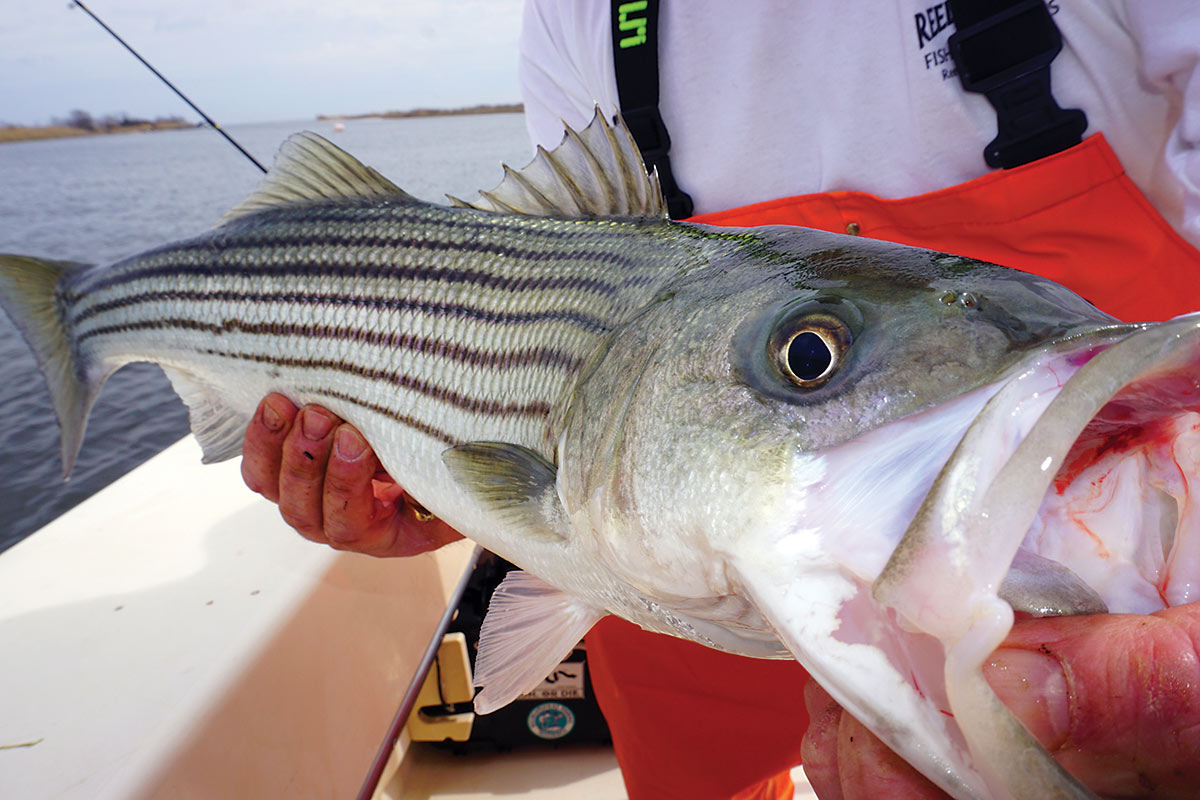
MAFMC is one of eight regional councils responsible for marine fishery management within U.S. federal waters from 3 to 200 miles off the coasts of New York, New Jersey, Pennsylvania, Delaware, Maryland, Virginia and North Carolina. While MAFMC Council members are appointees from each representative state, they’re also paid a daily fee from the federal government.
Members of the Atlantic States Marine Fisheries Commission (ASFMC) on the other hand do not get paid a daily rate, though the state-appointed members who are ultimately responsible for conservation and management of nearshore fish species in state waters (from shore out to 3 miles) are paid expenses. Outside of what either councilors or commissioners are paid, the advisory roles they perform are ultimately dependent upon information coming from federal staffers within NOAA Fisheries and the Department of Commerce.
The lack of data coming from scientists and federal staffers already had an impact on other meetings prior to the MAFMC cancellation announcement, as the January 28th meeting of the Scientific and Statistical Committee and the February 1st joint meeting of the MAFMC and ASMFC Summer Flounder, Scup, and Black Sea Bass Advisory Panels were both cancelled earlier in the month.
The official cancellation of the February meeting of the MAFMC is pretty solid indication of how the shutdown is impacting coastal fisheries.
ASMFC Trudges Along
If you’ve read the story on page 18G (Striped Bass: Has the Stock Crashed?) you know that the lingering federal shutdown is impacting release of the final peer reviewed striped bass stock assessment. As far as ASMFC cancelling their own scheduled meeting from February 5-7 in Alexandria, VA, ASFMC’s executive director, Robert Beal says don’t bet on it.
“We are not planning on cancelling the ASMFC meeting,” Beale said in late January, explaining that while a number of agenda items will need to be modified, “there is still plenty we can do.”
“For example, we will not have the final striped bass peer review report, but we are going to present the preliminary assessment results based on conversations during the peer review,” Beal said. Look for the final meeting agenda at www.asmfc.org as it’s made available.
“We are also likely to have delays in setting the 2019 final measures for summer flounder, Atlantic herring and winter flounder; and possible delays in the completion and review of upcoming benchmark stock assessments for American lobster, Atlantic cobia, Atlantic menhaden, and horseshoe crab,” Beal added.
I’m sure you can see where this is going. The longer this federal shutdown drags on, the more likely it is that the assessments and stock reviews for coastal fisheries will not be available for review. But in terms of what that actually means for changing regulations in 2019, no one really knows. A government shutdown of this length of time is unheard of, so fisheries managers are navigating through uncharted waters.
ASFMC’s Tina Berger recently told the Asbury Park Press of New Jersey that she was unable to speculate as to what the shutdown could mean for 2019 fishing seasons if fishery managers don’t have time to set measures due to the shutdown. “Basically, we’re all waiting on the benchmark assessments and stock reviews,” Berger told the Press.
Overall Outlook?
Before the holding pattern, the management glass for many anglers and recreational fishing business owners was about half full. In terms of black sea bass, MAFMC and ASMFC members had reviewed recommendations from their Monitoring Committee, Advisory Panel and staff for 2019 recreational black sea bass management measures. To achieve the 2019 recreational harvest limit of 3.66 million pounds, the management bodies agreed to maintain status quo recreational management measures in federal waters.
While the MAFMC manages federal waters and a 12.5-inch total length minimum fish size, 15 fish possession limit, and May 15 to December 31 open season, individual states were expected to review 2018 state regulations to present any new state options at the ASFMC meeting in February. Individual states once again would’ve had the option of opening their recreational black sea bass fisheries in state and federal waters from February 1-28, with a 12.5 inch minimum fish size and 15 fish bag limit. However, as in 2018, those states that did so would’ve been forced to give up available fishing days on sea bass later in the season which is why New Jersey in particular voted down the measure in 2018
The management bodies also reviewed recent recreational fishery performance and recommendations for 2019 recreational porgy management measures back in December, agreeing to maintain status quo recreational management measures in federal waters. At the December meeting, it was decided that the regional approach to recreational porgy management in state waters would continue, though state proposals for changes to the measures would get reviewed at the February 2019 meeting.
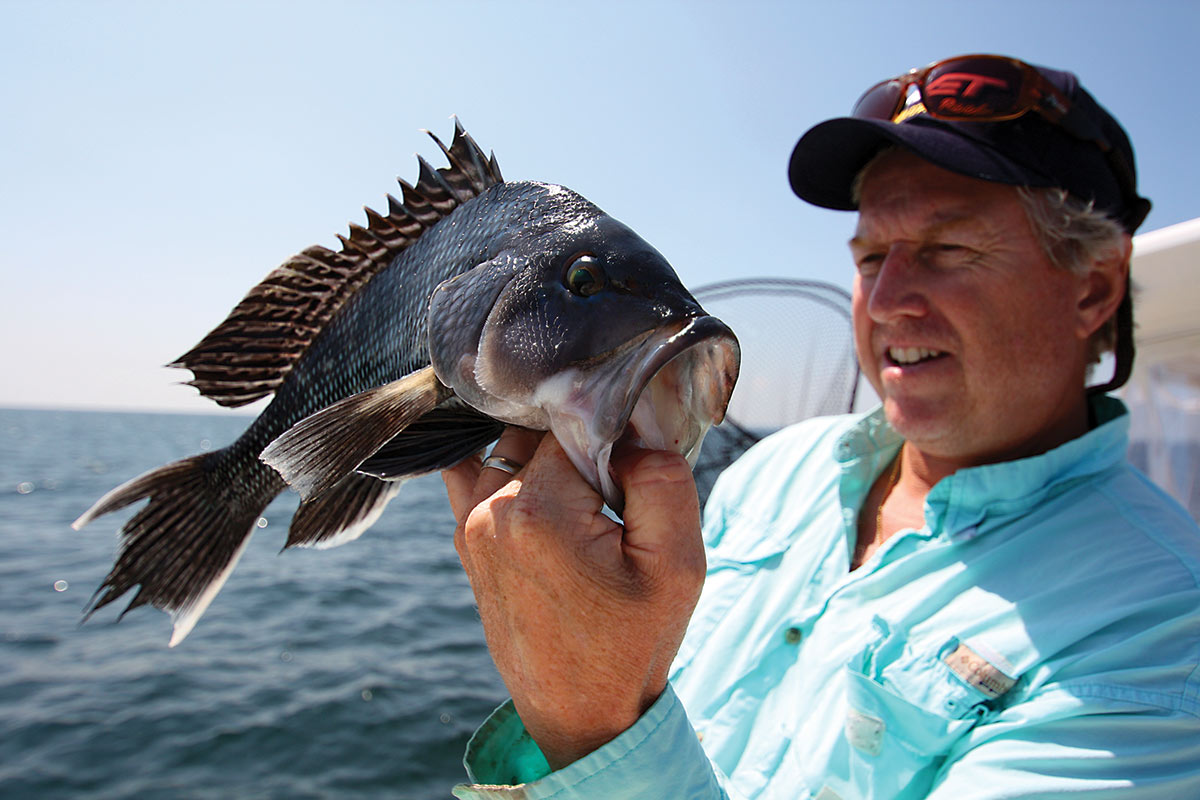
Finally on the fluke front, both the ASMFC and MAFMC reviewed recreational catch data from 2018 and looked at a schedule for reviewing and responding to the recent benchmark stock assessment. This full scale fluke assessment was peer reviewed in November 2018, and the assessment report was expected to be finalized in early 2019. But again, as ASMFC’s executive director noted, expect delays in setting final measures.
So to answer your boat show questions, until federal employees head back to work, last year’s regulations on black sea bass, fluke, cod, porgies, bluefish and striped bass remain the same. That means the regulatory lineup you see printed in the report section of this month’s edition of The Fisherman remains unchanged from 2018.
Working Without Pay
Active members of the U.S. Coast Guard have still been on the job during the shutdown; they’re just not getting paid for their service. Despite a one-time emergency payment on January 1, the money left to pay active duty members and those deployed overseas had quickly run out. Meanwhile, the Coasties whose duties have been deemed “non-essential” like Coast Guard academy maintenance workers have been officially furloughed.
“To the best of my knowledge, this marks the first time in our Nation’s history that service members in a U.S. Armed Force have not been paid during a lapse in government appropriations,” wrote U.S. Guard Commandant, Admiral Karl Schultz in a recent tweet.
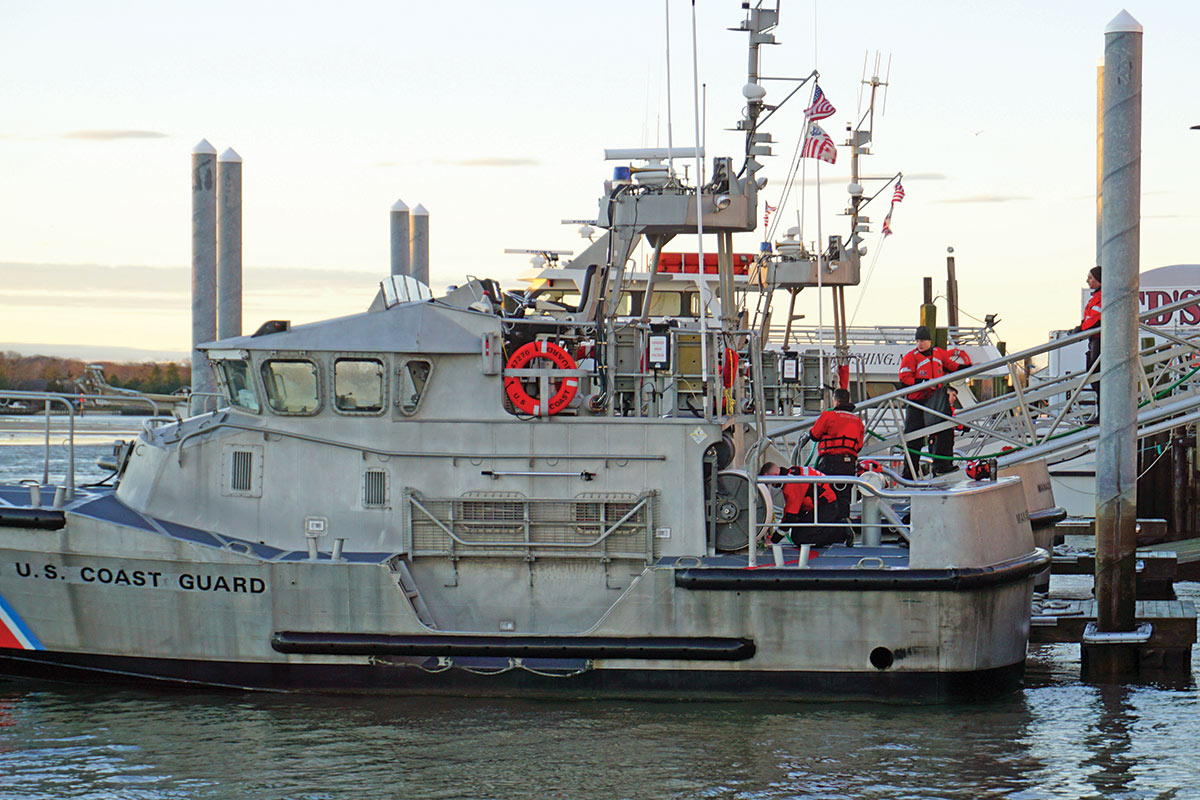
While U.S. Coast Guard functions as a branch of the U.S. military, the agency is not actually part of the Defense Department. Instead the agency is managed under Homeland Security, one of the key caught in the crosshairs in the ongoing political saga in our nation’s capital, and thus is not being funded during the government shutdown.
On January 8, newly elected New Jersey democrat, Rep. Jeff Van Drew, introduced the Pay Our Coast Guard Act of 2019 (HR.350) in the House to provide continue funding appropriations to the U.S. Coast Guard and would apply to pay and allowances for members of the Coast Guard, civilian employees, and contractors. A similar version of the bill was introduced in the U.S. Senate by South Dakota republican John Thune (S.21).
“It is unacceptable for the men and women who protect us to be treated like second class citizens over partisan bickering,” Van Drew said in a statement. “We need to re-open our government. This is shameful.”
According to the Wall Street Journal, a White House official said that President Trump showed willingness to sign bipartisan, stand-alone legislation that would restore their pay during the shutdown.
Meanwhile, the non-profit Coast Guard Foundation announced plans to send an initial $250,000 in family support to assist Coast Guard families impacted by the government shutdown. Founded in 1969, the Coast Guard Foundation provides education, support, and relief for Coast Guard members and their families.
“We are here to support the brave men and women of the United States Coast Guard, who continue to stand the watch during this challenging time,” said foundation president, Susan Ludwig. “While these funds will not cover the $150 million it takes to fund the Service’s payroll, we can send our help to those who continue to put their lives on the line every day and serve our nation with pride.”
The Coast Guard Foundation is partnering with the U.S. Coast Guard Chief Petty Officers Association to distribute the support to members around the country. Learn more about how you can make donations to the Coast Guard Foundation by visiting www.coastguardfoundation.org/shutdown.
